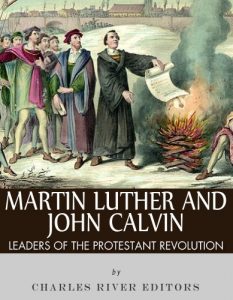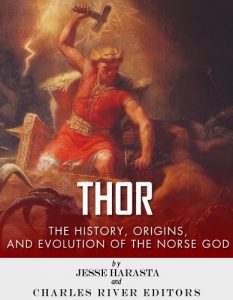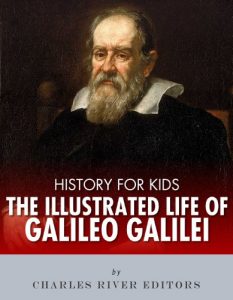*Includes pictures
*Includes Key's quotes and contemporary accounts about the Star Spangled Banner
*Includes online resources and a bibliography for further reading
*Includes a table of contents
“Then, in that hour of deliverance, my heart spoke. Does not such a country, and such defenders of their country, deserve a song?” – Francis Scott Key
“O say can you see, by the dawn's early light,
What so proudly we hail'd at the twilight's last gleaming,
Whose broad stripes and bright stars through the perilous fight
O'er the ramparts we watch'd were so gallantly streaming?
And the rocket's red glare, the bomb bursting in air,
Gave proof through the night that our flag was still there,
O say does that star-spangled banner yet wave
O'er the land of the free and the home of the brave?”
These words elicit strong emotions in the hearts of Americans more than 200 years after they were written. The Star Spangled Banner is still sung at sporting events, political rallies, and even church services around the nation on a daily basis, and for decades, they were considered mandatory memory work for every kid in grade school. Today, some find the song disturbing for various reasons, ranging from its martial words to its high notes, and others believe that the national anthem should not be sung because of the character of the man who wrote them: Francis Scott Key.
And what of this man, this brilliant lawyer who was born into slave-holding Maryland and himself held slaves even as he wrote of “the land of the free”? He was, to say the least, complex, as he at times fought in court both for and against slaves seeking their freedom. He was a founding member of an organization seeking to return captured slaves to their homelands, yet he also fought abolition tooth and claw. He seems to have been, like many men of his age, torn nearly to pieces by the these contradictions, even as he wrote in one of the song’s later verses:
“A home and a Country should leave us no more?
Their blood has wash'd out their foul footstep's pollution.
No refuge could save the hireling and slave
From the terror of flight or the gloom of the grave.”
On the one hand he considered the law of the land the highest authority on earth, but he saw little difference between faith in God and faith in America, as he wrote in the song’s rarely sung final verse: “Then conquer we must, when our cause it is just, And this be our motto – ‘In God is our trust.’” He was a well-known and well-connected Washington, D.C. attorney who was always in debt, even as he lived and worked among the most powerful people in the nation. In fact, he died a poor man even though he owned the rights to one of the most popular songs in American history.
Francis Scott Key’s personal life was somewhat less confusing, if more tragic. He came from a closely knit family and was especially influenced by his mother and grandmother. He was happily married for more than 40 years to a woman who never quite lived up to his standards of piety. He was a devoted and devout father of 11 children who suffered the pangs of burying several before their time. As a result, there was always a conflict between his desire to rejoice in all he had and his often melancholic state of mind.
Francis Scott Key: The Life and Legacy of the Man Who Wrote America’s National Anthem examines one of 19th century America’s most influential figures. Along with pictures and a bibliography, you will learn about Francis Scott Key like never before.
*Includes Key's quotes and contemporary accounts about the Star Spangled Banner
*Includes online resources and a bibliography for further reading
*Includes a table of contents
“Then, in that hour of deliverance, my heart spoke. Does not such a country, and such defenders of their country, deserve a song?” – Francis Scott Key
“O say can you see, by the dawn's early light,
What so proudly we hail'd at the twilight's last gleaming,
Whose broad stripes and bright stars through the perilous fight
O'er the ramparts we watch'd were so gallantly streaming?
And the rocket's red glare, the bomb bursting in air,
Gave proof through the night that our flag was still there,
O say does that star-spangled banner yet wave
O'er the land of the free and the home of the brave?”
These words elicit strong emotions in the hearts of Americans more than 200 years after they were written. The Star Spangled Banner is still sung at sporting events, political rallies, and even church services around the nation on a daily basis, and for decades, they were considered mandatory memory work for every kid in grade school. Today, some find the song disturbing for various reasons, ranging from its martial words to its high notes, and others believe that the national anthem should not be sung because of the character of the man who wrote them: Francis Scott Key.
And what of this man, this brilliant lawyer who was born into slave-holding Maryland and himself held slaves even as he wrote of “the land of the free”? He was, to say the least, complex, as he at times fought in court both for and against slaves seeking their freedom. He was a founding member of an organization seeking to return captured slaves to their homelands, yet he also fought abolition tooth and claw. He seems to have been, like many men of his age, torn nearly to pieces by the these contradictions, even as he wrote in one of the song’s later verses:
“A home and a Country should leave us no more?
Their blood has wash'd out their foul footstep's pollution.
No refuge could save the hireling and slave
From the terror of flight or the gloom of the grave.”
On the one hand he considered the law of the land the highest authority on earth, but he saw little difference between faith in God and faith in America, as he wrote in the song’s rarely sung final verse: “Then conquer we must, when our cause it is just, And this be our motto – ‘In God is our trust.’” He was a well-known and well-connected Washington, D.C. attorney who was always in debt, even as he lived and worked among the most powerful people in the nation. In fact, he died a poor man even though he owned the rights to one of the most popular songs in American history.
Francis Scott Key’s personal life was somewhat less confusing, if more tragic. He came from a closely knit family and was especially influenced by his mother and grandmother. He was happily married for more than 40 years to a woman who never quite lived up to his standards of piety. He was a devoted and devout father of 11 children who suffered the pangs of burying several before their time. As a result, there was always a conflict between his desire to rejoice in all he had and his often melancholic state of mind.
Francis Scott Key: The Life and Legacy of the Man Who Wrote America’s National Anthem examines one of 19th century America’s most influential figures. Along with pictures and a bibliography, you will learn about Francis Scott Key like never before.












